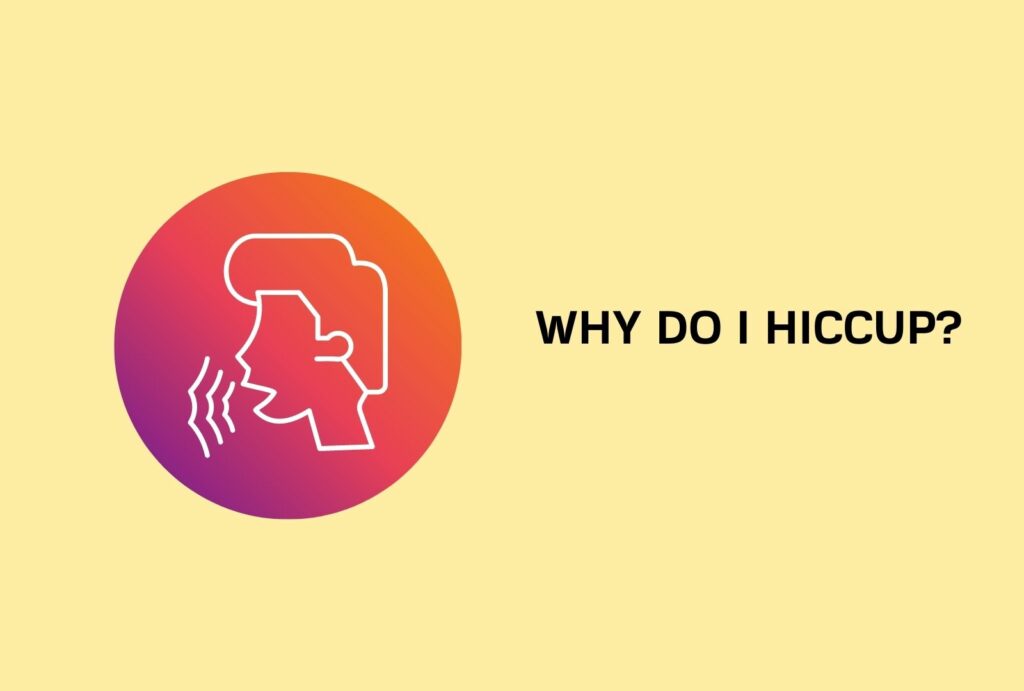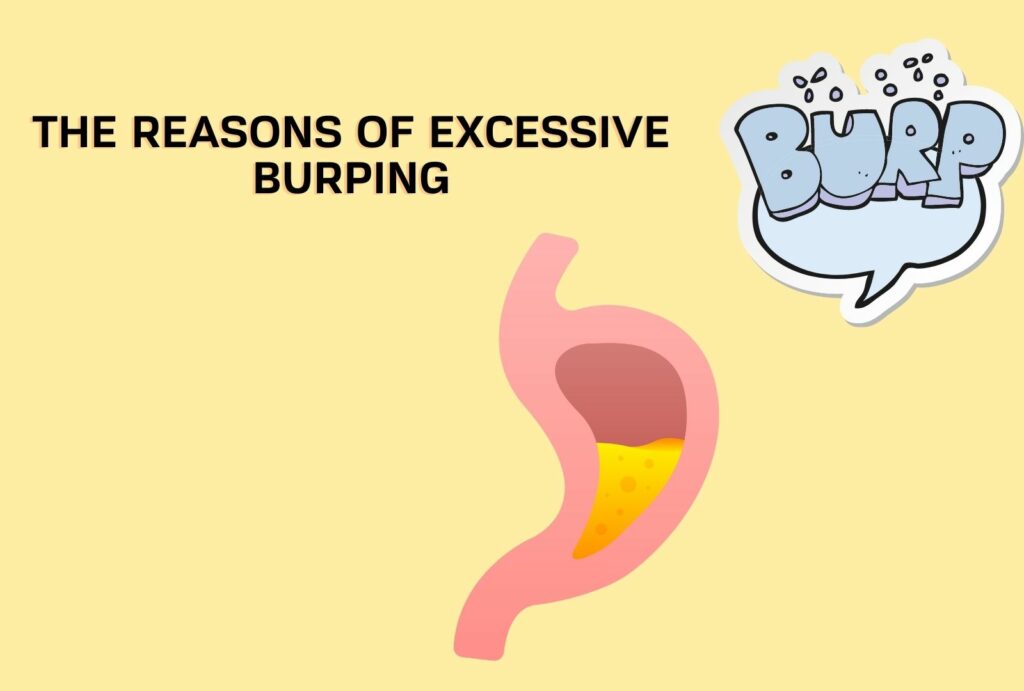
Hiccups and burps are both normal bodily functions that help us expel air from the digestive system. However, experiencing hiccups before burping can be uncomfortable and may signal an underlying issue. In this article, we will explore the causes of why do I hiccup before I burp and treatments for this issue.
Gas
One of the most common reasons why someone may hiccup before burping is due to an excess of gas in the digestive system. When this gas builds up, it can cause the diaphragm to contract, leading to hiccups. Burping can then help release some of this gas, alleviating discomfort and reducing hiccups.
Acid reflux
Another reason why someone may experience hiccups before burping is due to acid reflux. Acid reflux occurs when stomach acid flows back up into the esophagus, causing irritation and discomfort. Hiccups can be a sign of this reflux, and burping can help alleviate symptoms by releasing some of the gas that is causing the reflux.
Gastroesophageal reflux disease (GERD)
In some cases, hiccups before burping can be a sign of a more serious underlying issue, such as gastroesophageal reflux disease (GERD) or an obstruction in the digestive tract. If you experience persistent hiccups and burps, along with other symptoms such as chest pain, difficulty swallowing, or vomiting, it is important to seek medical attention.
Treatment for hiccups before burping will depend on the underlying cause. If excess gas is the issue, lifestyle changes such as avoiding carbonated beverages, chewing slowly, and avoiding foods that cause gas can help alleviate symptoms. Over-the-counter medications such as antacids can also help alleviate acid reflux symptoms.
If hiccups before burping are due to an underlying medical condition such as GERD, treatment may involve medications such as proton pump inhibitors or surgery to correct any underlying issues.
In conclusion, hiccups before burping can be uncomfortable and may signal an underlying issue. Causes of this issue include excess gas in the digestive system, acid reflux, and more serious underlying medical conditions. Treatment will depend on the underlying cause and may involve lifestyle changes, medications, or surgery. If you experience persistent hiccups and burps, along with other symptoms, seek medical attention to determine the underlying cause and receive appropriate treatment.
Do you hiccup and then burp?

Hiccups are a common bodily function that often occur unexpectedly and can be quite uncomfortable. They are caused by a sudden and involuntary contraction of the diaphragm muscle, followed by a quick closure of the vocal cords. This causes the characteristic “hic” sound that we associate with hiccups. However, many people wonder, “why do I hiccup before I burp?” and what causes this phenomenon.
There are many theories about why hiccups occur, but the exact cause is still not fully understood. One theory is that hiccups are a vestigial reflex left over from our evolutionary ancestors. Some scientists believe that hiccups may have served a useful purpose in ancient times, such as helping our ancestors to expel air from their lungs after eating a large meal. However, today, hiccups are mostly just an annoying nuisance.
Another possible explanation for why we hiccup before we burp is related to the way that our digestive system works. When we eat or drink, we swallow air along with our food or beverage. This air can get trapped in our stomach, leading to discomfort and bloating. When the stomach becomes distended, it can put pressure on the diaphragm muscle, causing it to contract involuntarily and trigger a hiccup. In some cases, the hiccup may be followed by a burp, which can help to release the trapped air and relieve the pressure on the diaphragm.
Additionally, there are some factors that can increase your likelihood of experiencing hiccups. For example, eating too quickly, consuming carbonated beverages, or drinking alcohol can all increase the amount of air that you swallow, which can lead to hiccups. Similarly, sudden changes in temperature, stress, and excitement can also trigger hiccups. In most cases, hiccups will go away on their own within a few minutes or hours, but if they persist for more than a day or are accompanied by other symptoms, it may be a sign of an underlying medical condition and should be evaluated by a healthcare professional.
In conclusion, hiccups are a normal and usually harmless bodily function that can be caused by a variety of factors, including swallowing air, changes in temperature or emotional state, and the contraction of the diaphragm muscle. While it can be frustrating to experience hiccups, especially if they persist for a long time, they are usually nothing to worry about. If you find yourself wondering “why do I hiccup before I burp?”, remember that it’s just a normal part of the digestive process, and there’s no need to be concerned unless your hiccups are severe or accompanied by other symptoms.
Why do I burp?
Burping, also known as belching, is a common bodily function that occurs when gas from the stomach is expelled through the mouth. Many people wonder, “why do I hiccup before I burp?” and if there is a relationship between these two bodily functions.
Digestive process
One reason why hiccups may occur before burping is that they are both related to the digestive process. Hiccups are caused by the sudden contraction of the diaphragm muscle, which can occur when the stomach becomes distended due to the accumulation of gas or air. Similarly, burping occurs when gas from the stomach is released through the mouth, often as a result of swallowing too much air or consuming certain foods or beverages that can cause gas.
Another reason why hiccups may occur before burping is that they both involve the relaxation of the lower esophageal sphincter (LES), a circular muscle that separates the esophagus from the stomach. When the LES relaxes, it allows gas or air to pass from the stomach into the esophagus and out of the mouth, either as a hiccup or a burp.
Underlying medical condition
In some cases, hiccups and burping may be symptoms of an underlying medical condition. For example, gastroesophageal reflux disease (GERD) can cause frequent burping, as well as heartburn, chest pain, and other symptoms. Similarly, hiccups that persist for a long time or are accompanied by other symptoms, such as difficulty swallowing or a feeling of fullness in the chest, may be a sign of a more serious condition, such as a neurological disorder or a gastrointestinal problem.
There are several things that you can do to reduce the likelihood of burping and hiccups. For example, you can try to eat and drink more slowly, avoid carbonated beverages, and avoid chewing gum or smoking, which can both cause you to swallow air. You can also try taking over-the-counter antacids or digestive aids, which can help to reduce the amount of gas in your stomach and ease symptoms.
Digestive process
In conclusion, burping and hiccups are both common bodily functions that are related to the digestive process. While it is normal to experience occasional hiccups or burping, if these symptoms persist for a long time or are accompanied by other symptoms, it may be a sign of an underlying medical condition that should be evaluated by a healthcare professional. By taking steps to reduce the amount of air you swallow and to manage your symptoms, you can help to minimize the discomfort and annoyance associated with burping and hiccups.
The reasons of excessive burping

Excessive burping, also known as belching, can be an uncomfortable and embarrassing problem that affects many people. While occasional burping is normal, excessive or frequent burping can be a sign of an underlying medical condition. In this article, we will explore the possible reasons why you may be experiencing excessive burping and what you can do to manage your symptoms.
Fiber and carbohydrates
One of the most common reasons why people experience excessive burping is due to the consumption of certain foods or drinks. Some foods, such as beans, onions, broccoli, and cabbage, contain high amounts of fiber and carbohydrates that are difficult for the body to digest, which can lead to the production of excess gas in the digestive system. Similarly, carbonated beverages, alcohol, and caffeine can also cause the production of excess gas and lead to burping.
Gastroesophageal reflux disease (GERD)
Another possible cause of excessive burping is gastroesophageal reflux disease (GERD), a condition in which stomach acid flows back into the esophagus, causing irritation and inflammation. This can lead to frequent burping, as well as heartburn, chest pain, and difficulty swallowing. Other conditions that can cause excessive burping include gastritis, peptic ulcers, and irritable bowel syndrome (IBS).
Gas
One possible reason why hiccups may occur before burping in some people is due to the accumulation of gas or air in the stomach. When the stomach becomes distended, it can put pressure on the diaphragm muscle, causing it to contract involuntarily and trigger a hiccup. Similarly, the release of gas from the stomach through the esophagus and out of the mouth can lead to burping.
If you are experiencing excessive burping, there are several things that you can do to manage your symptoms. First, try to avoid foods and drinks that can cause the production of excess gas, such as carbonated beverages, alcohol, and caffeine. You can also try taking over-the-counter antacids or digestive aids, which can help to reduce the amount of gas in your stomach and ease symptoms. If your symptoms persist or are accompanied by other symptoms, such as abdominal pain, nausea, or vomiting, it is important to seek medical attention.
In conclusion, excessive burping can be a sign of an underlying medical condition or the result of consuming certain foods or drinks that produce excess gas. By identifying the cause of your symptoms and taking steps to manage them, you can help to minimize the discomfort and embarrassment associated with excessive burping. If your symptoms persist or are accompanied by other symptoms, it is important to seek medical attention to rule out any underlying medical conditions.
Conclusion
In conclusion, hiccups and burping are common bodily functions that are related to the digestive process. Hiccups occur due to the sudden contraction of the diaphragm muscle, which can occur when the stomach becomes distended due to the accumulation of gas or air. Similarly, burping occurs when gas from the stomach is released through the mouth, often as a result of swallowing too much air or consuming certain foods or beverages that can cause gas.
There are several reasons why hiccups may occur before burping, including the fact that they are both related to the relaxation of the lower esophageal sphincter and the digestive process. Hiccups and burping can also be symptoms of underlying medical conditions, such as GERD, gastritis, or peptic ulcers. If you are experiencing persistent hiccups or burping, it is important to seek medical attention to rule out any underlying medical conditions.
There are several things that you can do to reduce the likelihood of hiccups and burping. For example, you can try to eat and drink more slowly, avoid carbonated beverages, and avoid chewing gum or smoking, which can both cause you to swallow air. You can also try taking over-the-counter antacids or digestive aids, which can help to reduce the amount of gas in your stomach and ease symptoms.
It is important to note that while occasional hiccups and burping are normal, excessive or frequent hiccups and burping can be a sign of an underlying medical condition that requires treatment. By identifying the cause of your symptoms and taking steps to manage them, you can help to minimize the discomfort and annoyance associated with hiccups and burping.
In summary, the relationship between hiccups and burping is complex, and both bodily functions are related to the digestive process. If you are experiencing persistent hiccups or burping, it is important to seek medical attention to rule out any underlying medical conditions. By making lifestyle changes and taking over-the-counter medications, you can help to reduce the likelihood of hiccups and burping and manage your symptoms.